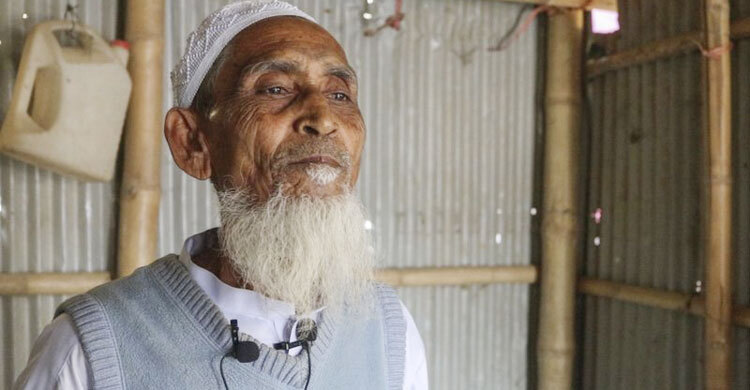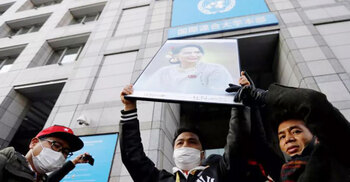Rohingya refugees fear returning to Myanmar after coup

Rohingya refugees from Myanmar living in camps in Bangladesh condemned the military coup in their homeland and said it makes them more fearful to return, reports The Associated Press.
A counterinsurgency operation by Myanmar’s military in 2017 involving mass rape, murders and the torching of villages drove more than 700,000 Rohingya Muslims into neighboring Bangladesh.
Bangladesh has hosted them in crowded refugee camps and is eager to begin sending them back to Buddhist-majority Myanmar. Several attempts at repatriation under a joint agreement failed because the Rohingya refused to go, fearing more violence in a country that denies them basic rights including citizenship.
Refugees said Tuesday they are more afraid now that the military is in complete control.
“The military killed us, raped our sisters and mothers, torched our villages. How is it possible for us to stay safe under their control?” said Khin Maung, head of the Rohingya Youth Association in the camps in Cox’s Bazar district.
“Any peaceful repatriation will hugely be impacted,” he told The Associated Press. “It will take a long time because the political situation in Myanmar is worse now.”
Officials from Myanmar and Bangladesh met last month to discuss ways to start the repatriations, with Bangladesh’s Foreign Ministry seeming more hopeful of success and officials saying they expected to begin sometime in June.
But refugees said they totally oppose the military takeover.
“We strongly condemn the coup. We love democracy and human rights, so we are worried about losing them in our country,” Maung said.
“We are part of Myanmar, so we feel the same as Myanmar’s common people. We urge the international community to raise its voice against the coup,” he said.
Mohammad Jaffar, 70, said they had been waiting to go back.
“The hope that we had to go back has now been interrupted by this change in regime in Myanmar,” Jaffar said. “Repatriation will not be safe at all under this regime. ... Now if we go back into the hands of people who are responsible for our torture, we will probably have to bear twice as much pain as before.”
Another refugee said repatriation would not be possible now.
“Even if they try to repatriate us, we will not agree to go back under the current situation. If they take us back into that regime, they will torture us even more,” Nurul Amin said.
Bangladesh’s Ministry of Foreign Affairs said on Monday that it hopes the coup will not hamper the refugees’ return.
“As an immediate and friendly neighbor, we would like to see peace and stability in Myanmar. We have been persistent in developing mutually beneficial relations with Myanmar and have been working with Myanmar for the voluntary, safe and sustained repatriation of the Rohingya sheltered in Bangladesh,” it said.
The United Nations has described the Myanmar military crackdown on the Rohingya as a form of genocide. In total, more than 1 million refugees are being sheltered by Bangladesh.
Monday’s coup was a dramatic backslide for Myanmar, which was emerging from decades of strict military rule and international isolation that began in 1962.







